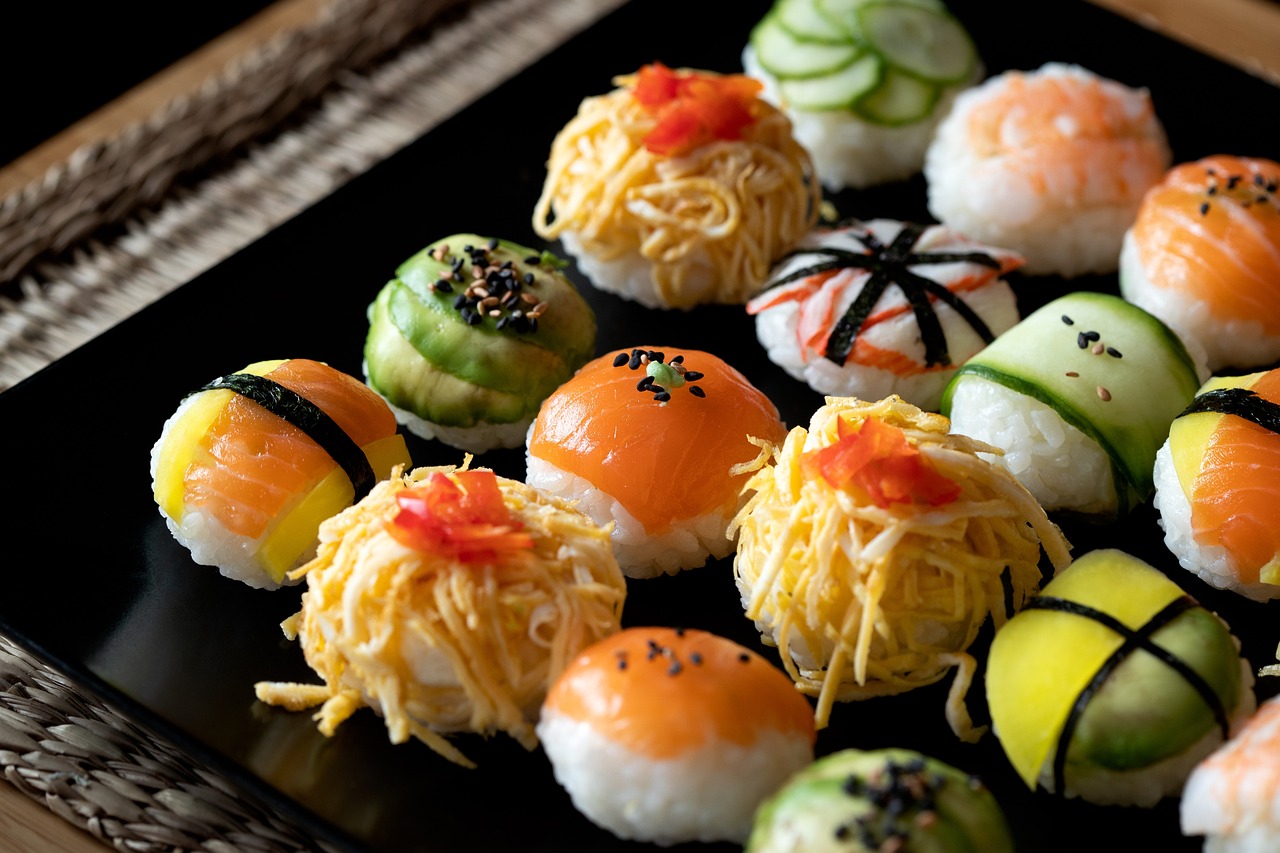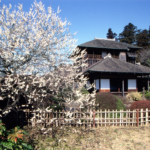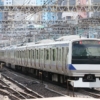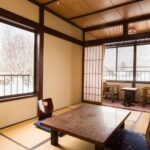Enjoying a Meal in Japan: Useful and Basic Phrases for Restaurants
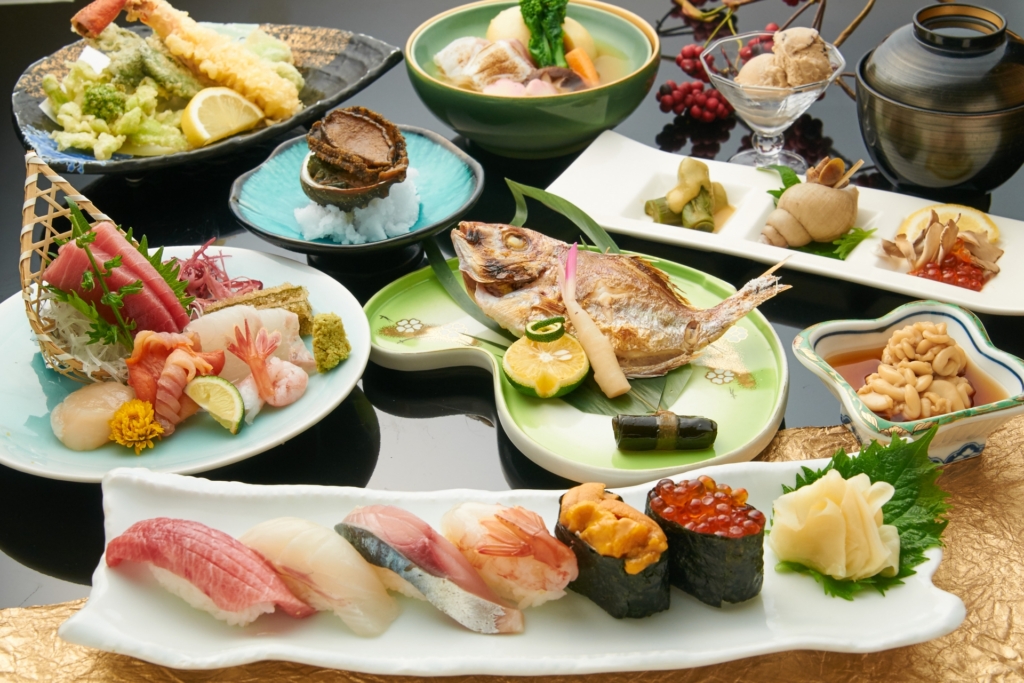
Unless you’re particularly fussy about your food, you’re bound to have countless delicious culinary experiences while traveling through Japan. Japanese people have a deep-rooted reverence for food, a tradition reflected not only in their restaurants but also in their home cooking.
This strong culinary culture has also driven businesses to focus on the creation of high-quality products. As a result, the delectability extends beyond the fare at Japanese restaurants to encompass convenience store offerings, fast food, desserts, snacks, and even beverages from vending machines.
Therefore, when traveling in Japan, it’s definitely worth immersing yourself in the rich variety of flavors the country has to offer. To assist you in your gastronomic adventures, here are a selection of useful phrases that can be used in Japanese restaurants, cafes, and bars.
See also: Surviving in Japan: Very Basic Japanese Phrases Every Traveller Should Know
Useful Japanese restaurant phrases
Do you know a good restaurant?
| English | written Japanese | pronounciation |
| Are you hungry? | お腹がすきましたか。 | Onaka ga sukimashita ka? |
| I am hungry. | 私はお腹がすきました。 | Watashi wa onaka ga sukimashita. |
| I’d like something to eat. | 何か食べたいです。 | Nani ka tabetai desu. |
| I’d like something to drink. | 何か飲みたいです。 | Nani ka nomitai desu. |
| Are there any inexpensive restaurants around here? | この近くに安いレストランはありますか? | Kono chikaku ni yasui restoran wa arimasu ka? |
| Can you recommend a good restaurant? | 良いレストランを教えていただけますか? | Yoi restoran wo oshiete itadakemasu ka? |
| ls there a … restaurant? | ・・・のレストランはありますか? | . . . no restoran wa arimasu ka? |
| Which is the best sushi restaurant? | どの寿司屋が一番おいし いですか? | Dono sushiya ga ichiban oishii desu ka? |
Please make a reservation for two people.
Just as it likely is in your home country, it’s a good idea to make a reservation if you want to dine at a high-end restaurant in Japan. While you might get a seat without a reservation at cheaper eateries, you may end up waiting if the place is full. In such cases, you add your name to the waiting list and patiently await your turn until your name is called.
So, plan accordingly to make the most of your culinary adventures in Japan!
| English | written Japanese | pronounciation |
| Is it open? | 開いていますか? | Aite imasu ka? |
| What time do you open? | 何時に開店しますか? | Nanji ni kaiten shimasu ka? |
| Which day do you close? | いつお休みですか? | Itsu o-yasumi desuka? |
| I will come back later. | 後でまた来ます。 | Ato de mata kimasu. |
| I don’t have a reservation. | 予約はしていません。 | Yoyaku wa shiteimasen. |
| I’d like to reserve a table for two people. | 2人用のテーブルの予約をお願いします。 | Futari yō no tēburu no yoyaku wo onegai shimau. |
| Could you please reserve me a table at … restaurant? | ・・・レストランのテーブルを予約してもらえますか? | …restoran no tēburu wo yoyaku shite moraemasuka? |
| I have a reservation. | 予約をしています。 | Yoyaku wo shite imasu. |
| for 3 people | 3人用 | sannin-yō |
| for 4 people | 4人用 | yonin-yō |
| for 5 people | 5人用 | gonin-yō |
| for 6 people | 6人用 | rokunin-yō |
| for 7 people | 7人用 | shichinin-yō/ nananin-yō |
| for 8 people | 8人用 | hachinin-yō |
| for 9 people | 9人用 | kūnin-yō |
| for 10 people | 10人用 | jūnin-yō |
| Can you speak English? | 英語が話せますか? | Eigo ga hanase maska? |
| Do you speak English? | あなたは英語を話しますか? | Anata wa eigo wo hanashi masuka? |
| Do you speak …? | あなたは…を話しますか? | Anata wa … wo hanashi masuka? |
| Does anyone here speak English? | ここに英語を話す人がいますか? | Koko ni eigo wo hanasu hito ga imasu ka? |
Could we sit in a non-smoking area?
When you enter a restaurant in Japan, especially a traditional Japanese eatery, the staff will welcome you with a polite “Irasshaimase(いらっしゃいませ)," a customary greeting.
Next, they’ll likely ask, “Nanmei sama desuka? (何名様ですか?: How many people?)" If you’re unsure about how to convey numbers in Japanese, don’t worry! Simply use your fingers to indicate the number of people in your party.
If the restaurant offers traditional seating options (like in many Japanese restaurants), you might be asked if you prefer a table or tatami mat seating(zashiki:座敷).
Additionally, some restaurants in Japan still have designated smoking sections, so you may also be asked whether you’d prefer a smoking or non-smoking area. Navigate these choices smoothly, and you’re well on your way to a delightful dining experience!
| English | written Japanese | pronunciation |
| Welcome. | いらっしゃいませ。 | Irasshai mase. |
| How many people? | 何名様ですか? | Nanmei sama desu ka? |
| A table for One/two/three, please. | 一人/二人/ 三人、お願い します。 | Hitori/futari/Sannin, onegai shimasu. |
| I’d like to a table for 2. | 2人用のテーブルをお願いします。 | Futari yō no tēburu wo onegai shimasu. |
| Which area would like to sit in, smoking or non-smoking? | 禁煙席と喫煙席のどちらがよろしいでしょうか? | Kin-en seki to kitsu-en seki no dochira ga yoroshii deshōka? |
| Which would like to sit, at a table or in a zashiki (on tatami matting)? | テーブルとお座敷、どちらがよろしいでしょうか? | Tēburu to ozashiki, dochira ga yoroshī de syōka? |
| We’d like to sit at a table/in a zashiki. | テーブル/座敷がいいです。 | tēburu/zashiki ga ii desu. |
| Could we have a …? | ・・・のテーブルをお願いします。 | … tēburu wo onegai shimasu. |
| in the corner | 隅 | sumi |
| by the window | 窓際 | magogiwa |
| on the terrace | テラス | terasu |
| in a non-smoking | 禁煙エリア | kin-en eria |
| We’d like to sit at the counter. | カウンターの席をお願いします。 | Kauntā no seki wo onegai shimasu. |
| Can sit here? | ここに座ってもいいですか? | Koko ni suwattemo ii desu ka? |
Is there an English menu?
Ordering should be a breeze if the restaurant you’ve chosen offers an English menu. If an English menu isn’t available, you can resort to a couple of alternative strategies. For instance, some restaurants display plastic replicas of their dishes near the entrance. When the staff member arrives to take your order, simply point to the dish you want.
Alternatively, if you spot someone enjoying a meal that piques your interest, don’t hesitate to point it out and order the same!
If you’re at a Japanese eatery, ordering the daily lunch special or a 'set meal’ (teishoku:定食) is a foolproof and delicious choice. Set menus typically feature popular items from the restaurant and are pre-prepared to a certain extent, meaning they can be served quickly. Plus, they’re usually reasonably priced! However, be prepared for the possibility of encountering some ingredients you’re not particularly fond of. But after all, this is all part of the rich experience of savouring Japanese flavours.
| English | written Japanese | pronounciation |
| I’d like the menu. | メニューをお願いします。 | Menyū wo onegai shimasu. |
| Do you have an English menu? | 英語のメニューはありますか? | Eigo no menyū wa arimasu ka? |
| May I have the menu, please? | メニューをお願いします。 | Menyū wo onegai shimasu. |
| (Waiter/Waitress), please. | すみません、お願いします。 | Sumimasen, onegai shimasu. |
| Waiter/waitress! | ちよっと、すみません。 | Chotto, sumimasen. |
| What do you recommend? | お勧めの料理は何ですか? | Osusume no ryōri wa nandesu ka? |
| What would you recommend? | おすすめは何ですか? | Osusume wa nan deska? |
| I recommend … | おすすめは・・・です。 | Osusume wa … desu. |
| Today’s special is … | 本日のおすすめは・・・です。 | Honjitsu no osusume wa … desu. |
| What would you like to drink? | お飲物は何になさいますか。 | Onomimono wa nani ni nasaimasuka? |
| Are you ready to order? | お決まりですか? | Okimari desuka? |
| What would you like? | 何がよろしいでしょうか。 | Nani ga yoroshii de shōka? |
| Do you have a set menu/local dishes? | 定食/郷土料理はありま すか? | Teishoku/kyōdo ryōri wa arimasu ka? |
| ls it served …? | これは…ですか? | Kore wa … desu ka? |
| ls it spicy/salty? | これは辛い/塩からいですか? | Koreha karai/shio-karai desuka? |
| ls there a set menu? | 定食は ありますか? | Teishoku wa arimaska? |
| What is the price of the set menu? | 定食はいくらですか? | Teishoku wa ikura desu ka? |
| What kinds of meat do you have? | どんな肉がありますか。 | Donna niku ga arimasu ka? |
| What salads do you have? | どんなサラダがありますか? | Donna salada ga arimasu ka? |
| What soups do you have? | どんなスープがありますか? | Donna sūpu ga arimasu ka? |
| What’s in it? | 中に何が入っていますか? | Naka ni nani ga haitte imasuka? |
| What’s in that dish? | あの料理に何が入っていますか? | Ano ryōri no naka ni nani ga haitte imasu ka? |
| What’s this? | これは何ですか? | Kore wa nan desu ka? |
Is there special menus?
| English | written Japanese | pronounciation |
| Do you have … for diabetics? | 糖尿病の人のための・・・はありますか? | Tōnyōbyō no hito no tame no … wa arimasuka? |
| Do you have vegetarian dishes? | ベジタリアン用の料理はあ りますか。 | Vejitarian yō no ryōri wa arimasuka? |
| I am a vegetarian. | 私は ベジタリアンです。 | Watashi wa bejitarian desu. |
| I’m a vegan. | 私はヴィーガン です。 | Watashi wa vīgan desu. |
| I’m allergic to peanuts. | 私はピーナッツアレルギーです。 | Watashi wa pīnattsu arerugī desu. |
| I mustn’t eat food containing flour/ sugar. | 小麦粉/砂糖が入ったものは食べられません。 | Komugiko/satō ga haitta mono wa taberaremasen. |
| I’m on a low-salt diet. | 私は塩分をひかえています。 | Watashiwa enbun wo hikaete imasu. |
| I must avoid fatty dishes. | 脂肪分の多い料理は避けています。 | Shibo-bun no ōi ryōri wa sakete imasu. |
| I don’t eat… | ・・・は食べられません。 | … ha taberaremasen. |
| Do you have anything ready quickly? | 何か早くできるものはあ りますか? | Nani ka hayaku dekiru mono wa arimasu ka? |
| I’m in a hurry. | 私は急いでいます。 | Watashi wa isoide imasu. |
| But, we have …. | ・・・でしたらありますが。 | … deshitara arimasu ga. |
| How about …? | ・・・はいかがでしょうか。 | … wa ikaga de shōka? |
| I am sorry. We don’t have …. | 申し訳ありません/すみません、…はございません。 | Moushiwake arimasen, /Sumimasen, … wa arimasen. |
| There is no more … today. | ・・・は終わってしまいました。 | … wa owatte shimaimashita. |
| Could have … instead of meat? | お肉の代りに…をもらえますか? | Oniku no kawari ni … wo moraemasuka? |
| Could I have a small portion, please? | 少しだけもらえますか? | Sukoshi dake moraemasu ka? |
| Could we have a/ an/some …, please? | ・・・をもらえますか? | … wo moraemasuka? |
| I’d like a … break-fast, please. | ・・・朝食をお願いします。 | … chōshoku wo onegai shimasu. |
| I’d like this. | これをお願いします。 | Kore wo onegai shimasu. |
| I’d like to drink … | ・・・をお願いします。 | … wo onegai shimasu. |
| I’d like to eat (some). . . | …をお願いします。 | … wo onegai shimasu. |
| marinated | つけ汁に浸した | tsuke-jiru ni hitashita |
| May I have one of those? | それをひとつ お願いします。 | Sore wo hitotsu, onegaishimasu? |
| May I have some …? | ・・・をもらえますか? | … wo moraemasu ka? |
| When do you stop serving? | ラストオーダーはいつですか? | Lasto ōdā wa itsu desuka? |
| baked | 天火焼きの | tenpi-yaki no |
| barbecued | バーベキューした | bābekyū shita |
| boiled | ゆでた | yudeta |
| braised | とろ火で煮た | torobi de nita |
| deep-fried | 揚げた | ageta |
| grilled | 焼いた | yaita |
| poached | 軽くゆでた | karuku yudeta |
| roasted | ローストした | rōsto shita |
| shallow-fried | 炒めた | itameta |
| steamed | 蒸した | mushita |
| stewed | 煮込んだ | nikonda |
How do I eat this?
When the meal is finished, take the slip left on the table by the waiter to the cashier and pay at the cash register.
In some upscale restaurants and izakaya (居酒屋: Japanese style pubs), there may be no slip. In such cases, you must ask the waiter for the bill.
| English | written Japanese | pronounciation |
| Cheers! | 乾杯! | kampai! |
| How do I eat this? | これはどうやって食べるのですか? | Kore wa dōyatte taberuno deska? |
| May I have more…? | もう少し・・・をもらえますか? | Mō sukoshi … wo morae masuka? |
| Can I have a sweetener? | ダイエットシュガーをもらえますか? | Daietto shugā wo moraemasuka? |
| Could I have a dessert menu, please? | デザートのメニューをもらえますか? | Dezāto no menyū wo moraemasu ka? |
| What desserts do you have? | どんなデザートがありますか? | Donna dezāto ga arimasu ka? |
| I’d like a dessert, please. | デザートをお願いします。 | Dezāto wo o-negaishimasu |
| I don’t want anything sweet. | 甘い物は欲しくありません。 | Amai mono wa hoshiku arimasen. |
| Just a small portion. | ほんの少しだけ | Hon no sukoshi dake. |
| cold | 冷たい | tsumetai |
| delicious | おいしい | oishii |
| full (stomach) | おなかが いっばい | onaka ga ipраі |
| hot/cold | 熱い/冷たい | atsui/ tsumetai |
| spicy | 辛い | karai |
| sweet, mild | 甘い | amai |
| to drink | 飲む | nomu |
| to eat | 食べる | taberu |
| I wouldlike (a)… | いくらですか? | (a)…wo onegai shimasu. |
| May have the bill?/Please bring the bill. | お勘定をお願いします。 | Okanjō wo onegai shimasu./Okaikei wo onegai shimasu. |
| That was delicious! | おいしかった! | oishi-katta! |
| The meal was very good, thank you. | ごちそうさま でした。 おいしかったです。 | Gochisōsama deshita. Oishikatta desu. |
